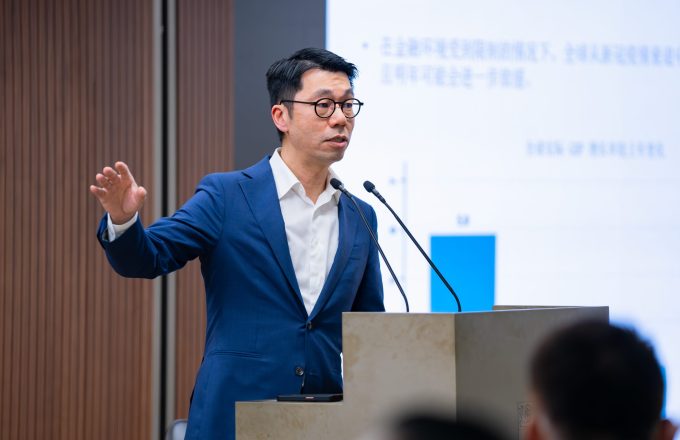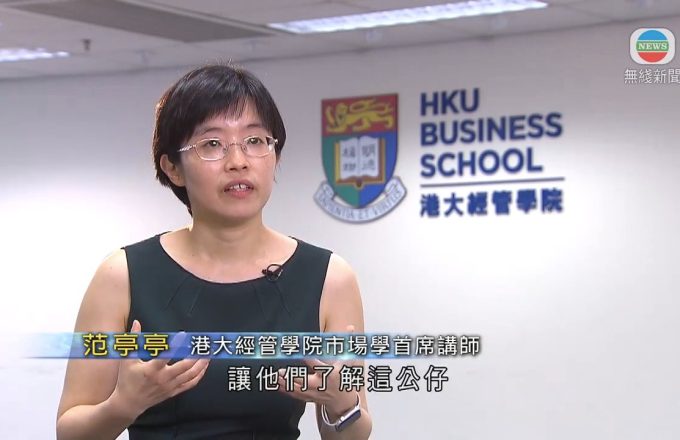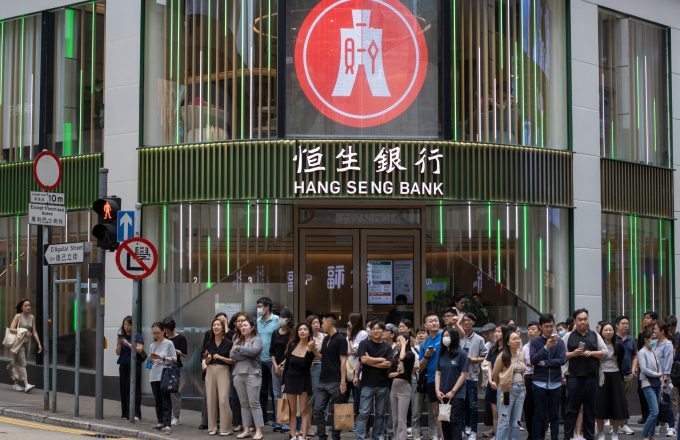Despite resource constraints and pressures coming from a growing population, can emerging economies improve healthcare access and reduce costs – without sacrificing the quality of healthcare services? Based on field visits and joint research on public health, Prof. Sundara Natarajan Panchanatham, Assistant Professor in Innovation and Information at HKU Business School, revealed that medical practices in emerging economies “can transform healthcare systems, making them more resilient and responsive to the demands of their populations.”
29 May 2025
Further to the 12.2 million visitor arrivals in Hong Kong registered in the first quarter of 2025, a new quarterly high since the coronavirus pandemic, Mainland’s Labour Day Golden Week ushered in another 1.1 million visitors, representing a 22% increase year-on-year. Of course, a rise in visitor numbers alone does not necessarily indicate that all is well. With a slackening global economy and consumption downgrade, many visitors come and go in a single day, while some have even “invented” a new money-saving travel strategy―spending the night at 24-hour fast-food restaurants.
28 May 2025
Faculty
Prof. Heiwai Tang, Associate Dean of the HKU Business School and Director of the Asia Global Institute, has highlighted the need for Hong Kong to diversify its economy beyond its current narrow structure. To drive sustainable growth, he calls for the development of "new industries" and introduces a groundbreaking method to assess their economic contributions. This innovative approach enables the government to track industrial trends, design targeted policies, and measure their effectiveness with precision. Applying this method, Prof. Tang’s research uncovers the substantial potential of new industries to expand Hong Kong’s GDP. Fueled by rapid advancements in innovation and technology, sectors like "research, design, testing, and environmental engineering" saw their value added soar from HK$3.3 billion to HK$13.3 billion between 2000 and 2023. Similarly, "computer programming, data, and industrial internet services" has surged from HK$5 billion to HK$25.5 billion in the same period. Beyond these emerging sectors, Prof. Tang underscores Hong Kong’s pivotal role in the global supply chain. He notes that productive services, ranging from logistics to legal services, are essential in supporting not only local industries but also worldwide supply networks, making them a vital component of Hong Kong’s economic future.
22 May 2025
Faculty
To the surprise of most, consensus was readily reached on a truce at the recent tariff talks between China and the US in Geneva. For the time being, tariff rates have reverted to the levels prior to the so-called “Liberation Day”, though the international landscape can hardly return to its previous state. The US president Donald Trump has been manipulating “negotiation tactics”, with the asking price constantly fluctuating―now high, now low; now real, now fake.
21 May 2025
Faculty
Currently, public housing tenants earning more than HK$60,000 per month can use the Green Form to apply for flats under the Home Ownership Scheme (HOS). The Green Form is reserved for people already living as public housing tenants. On the other hand, people not living in public housing but earning the same income level are barred from applying for the White Form Secondary Market Scheme to purchase HOS flats, as their income exceeds the eligibility limit. Next, although the Housing Department aims to encourage upward mobility through the purchase of HOS or private flats, the threshold for evicting tenants living in public housing is set at a cumulative HK$125,500 for a three-person household’s monthly income. So long as they collectively earn less than HK$125,500 per month and can pay their rent, they can stay and then buy a flat. Dr. Vera Yuen, Lecturer in Economics at HKU Business School, commented, “Those earning HK$20,000 to HK$40,000 per month and renting privately can struggle to pay their rent, exhausting their monthly income. But in public housing, even those earning over HK$100,000 can remain—it’s actually very difficult for the Housing Department to evict these people earning a relatively high income from their public housing flat.”
18 May 2025
Faculty
How can Hong Kong’s creative industries shine on the global stage? Hong Kong has long been renowned for its intellectual property-linked commercial industries, such as local handmade figurines and models. This, in turn, has nurtured many outstanding artists. Lung Ka-sing, for example, creator of the popular Labubu toy line, hails from Hong Kong. He was brought to fame thanks to Pop Mart, a Mainland company that picked Lung and showcases the strength of Hong Kong’s local creativity. In an interview with TVB News, Dr. Tingting Fan from HKU Business School explained that Pop Mart has fully integrated its online and offline channels. Offline stores are designed to attract consumers and introduce them to the toys. She remarked, “When someone buys [a Labubu toy], the company then uses online channels to learn more about this customer’s shopping preferences. In my opinion, this is exactly what Hong Kong needs: a more sophisticated and comprehensive business model [like Pop Mart’s].” Dr. Fan also suggested that the government should provide platforms to boost exposure for local artists, helping to propel Hong Kong’s creative industries to new heights.
18 May 2025
Faculty
Have you noticed how, historically, industrial revolutions across various nations mainly impacted low-income jobs? What’s different now is that the current wave in artificial intelligence seems different. AI not only automates entry-level positions but also has the potential to replace high-skilled, high-income roles. According to the International Monetary Fund (IMF), AI could affect up to 40% of global employment. That figure could be as high as 60% in developed economies like Hong Kong.
16 May 2025
Hong Kong has long recorded successful performance in its four pillar industries, comprising trading and logistics, financial services, professional and producer services, and tourism. According to research by the Hong Kong SAR Government, they contributed close to 60% of the Gross Domestic Product (GDP) and almost half of the total employment before COVID 19. However, all four of these pillars have experienced a decline in their respective areas as a result of the rapid changes in market needs and user behaviour, regional and global competition, the development of new value chains, the impact of advanced technologies, and changes in the geopolitical environment. To address such challenges, “innovation” has been introduced to tackle these pain-points of Hong Kong. The question is how we should develop innovation strategies instead of coming up with ideas just for the sake of “innovation”. This article will discuss how innovation strategy can be approached from the perspective of poverty alleviation and how the Web3 industry may develop―both topics likely to shed light on how best to chart Hong Kong’s future course of development.
14 May 2025
Faculty
Will Hong Kong continue its economic boost thanks to AI-supported manufacturing? Hong Kong's industrial sector may continue to add a major boost to the city’s economy. In a recent study commissioned by the Federation of Hong Kong Industries and conducted by the Hong Kong Institute of Economics and Business Strategy at the University of Hong Kong, the potential of "Made-in-Hong Kong" products to shine was highlighted. Specifically, this would come through technology, automation, and strategic government support. The study found that in 2023, the industrial sector added about HK$127 billion to the economy thanks to new high-end manufacturing in microelectronics, biotechnology, and the food industry. Prof. Heiwai Tang, Associate Dean of HKU Business School and Director of the Asia Global Institute, led the study that emphasised the importance of adapting to the changing global landscape. While many companies have successfully reduced their reliance on the US market, those who haven't embraced transformation face significant financial risks. The report suggested Hong Kong was on the right track by strengthening its collaboration within the Greater Bay Area, ASEAN, and other regions. Commenting on the effect of not responding to the evolving market conditions, Prof. Tang said, “The first consequence is one would incur significant financial losses, and secondly, if one were to try to set up a new factory now, it would take years before seeing profits.”
13 May 2025
Faculty






















